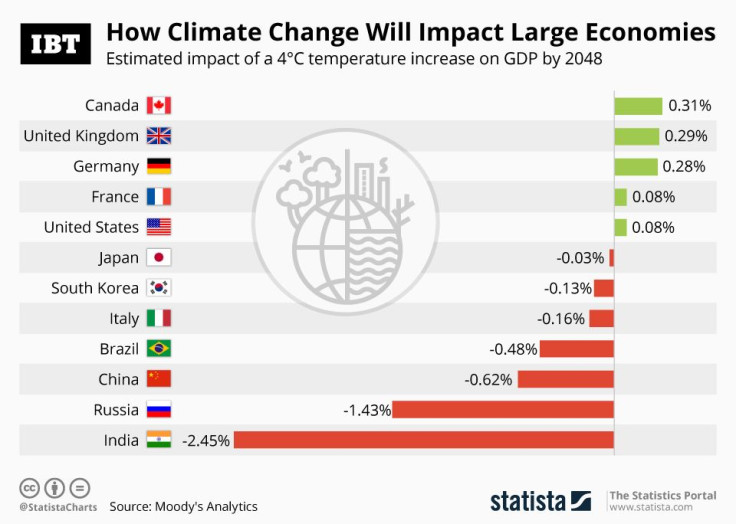Infographic: Economic Impact Of Climate Change By 2048

A recent analysis by Moody's Analytics focused on the economic impact of climate change. The research looked at four different scenarious, entailing temperature increases of 1, 1.9, 2.4 and 4.1°C up to 2100. For example, global economic damage is expected to $54 trillion in 2100 under a 1.5°C warming scenario while 2°C would entail a cost of $69 trillion.
There would be winners and losers in the most dire scenario, a 4°C temperature increase. If that came to pass, it is estimated that India would suffer the biggest blow to its GDP by 2048 out of all of the world's biggest economies, with a 2.45 percent contraction. Given its lower share of service industry employment, India suffers greatly from the heat stress impact channel. China also suffers from negative heat stress but it is not as badly impacted as India due to benefits from tourism and agricultural activity.
Canada, the UK, Germany, France and the U.S. would see very modest increases in GDP under a worst-case scenario. Moody's does note that the research does not factor in several climate change metrics that are also likely to affect the economy such as the increasing likelihood of expensive natural disasters.



















